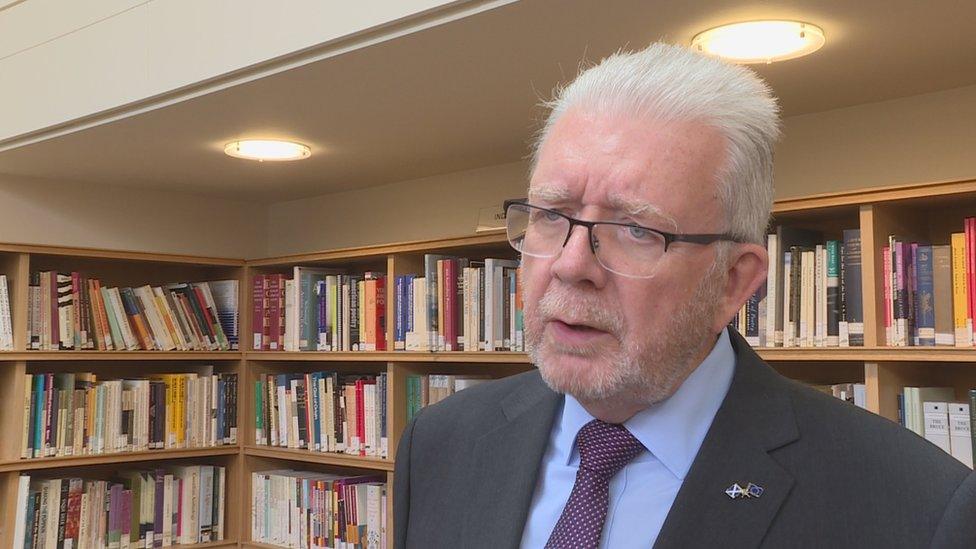MSPs call for solution to devolution row 'impasse'
- Published
- comments
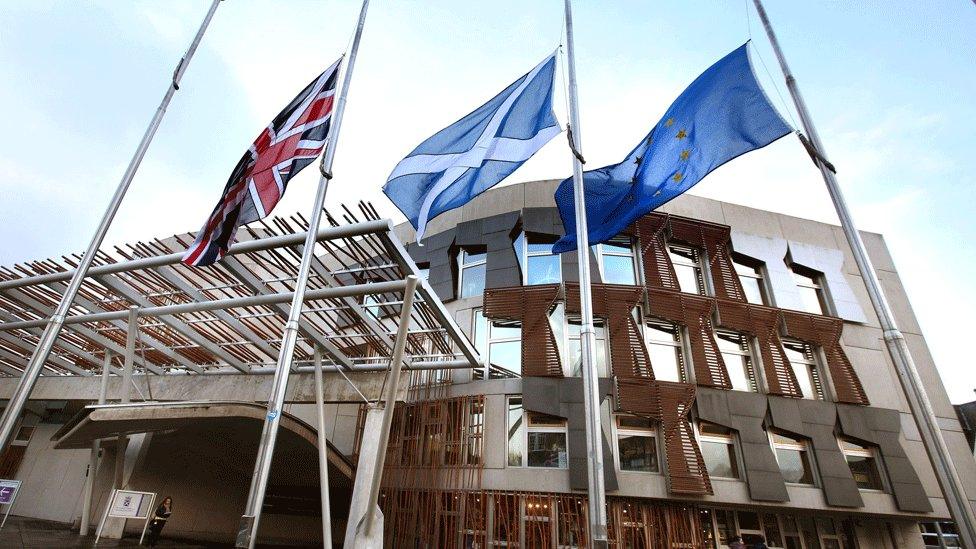
Holyrood's constitution committee has called on Scottish and UK ministers to resolve the "impasse" over devolution and consent "as a matter of urgency".
A new report from the group said MSPs should not give their consent to the UK Trade Bill while the dispute continues.
The Scottish government is furious that the EU Withdrawal Act passed despite MSPs refusing to give it their backing.
And they have resolved not to put any more Brexit bills forward for votes at Holyrood until the row is resolved.
Constitution committee convener Bruce Crawford said the schism "needs to be addressed as a matter of urgency", and before the Trade Bill completes its passage through Westminster.
The UK government contends that the Trade Bill is "fully compliant" with the devolution settlement.
Ministers in London and Edinburgh have long been at odds over Brexit, and the dispute reached a head when Westminster passed the flagship EU Withdrawal Act despite a vote of 93 to 30 against it at Holyrood.
The Scottish government said this proved that the Sewel Convention - that Westminster would not normally legislate across devolved areas without consent - was "broken", with Brexit Secretary Mike Russell saying "we can't carry on with devolution as it is now".
The UK government contends that the situation around Brexit is "not normal", and have been backed in this position by Lord Sewel himself, who said the "size and scale" of the issue meant MPs must be able to act "on initiative".
The two sides are also awaiting a legal judgement on whether Holyrood's alternative to the Withdrawal Bill should be allowed to stand, after UK law officers challenged it in the Supreme Court.
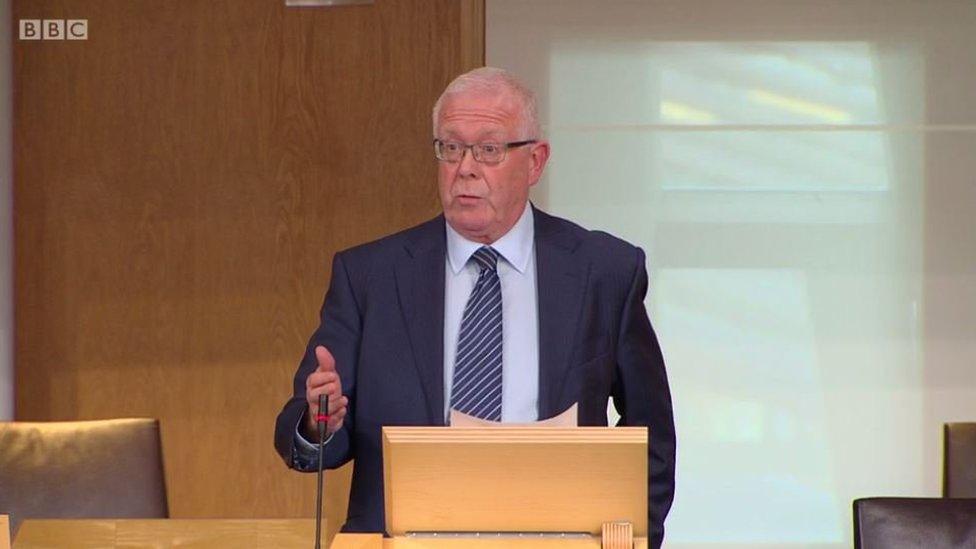
Bruce Crawford said it was "very disappointing" that the bill does not involve devolved administrations in negotiations
The committee wrote in a new report on the Trade Bill that MSPs should not give their consent to its passage unless clauses in it which they say constrain the powers of Scottish ministers are removed.
This echoes the concerns voiced about the EU Withdrawal Act, which centred on who would have the final say over the operation of common frameworks of powers which are currently exercised from Brussels.
Mr Crawford said he would write to Mr Russell and Scottish Secretary David Mundell "requesting that they seek a solution to the impasse over the Sewel convention as a matter of urgency".
And he backed a call from Westminster's public administration and constitutional affairs committee for the UK government to "rethink devolution" and "set out a clear statement of circumstances under which legislative consent is not required by the Sewel convention".
Mr Crawford said: "This committee believes that the impasse between the Scottish government and the UK government in relation to the Sewel convention needs to be addressed as a matter of urgency and ideally in advance of the final amending stage of the Trade Bill in the House of Lords."
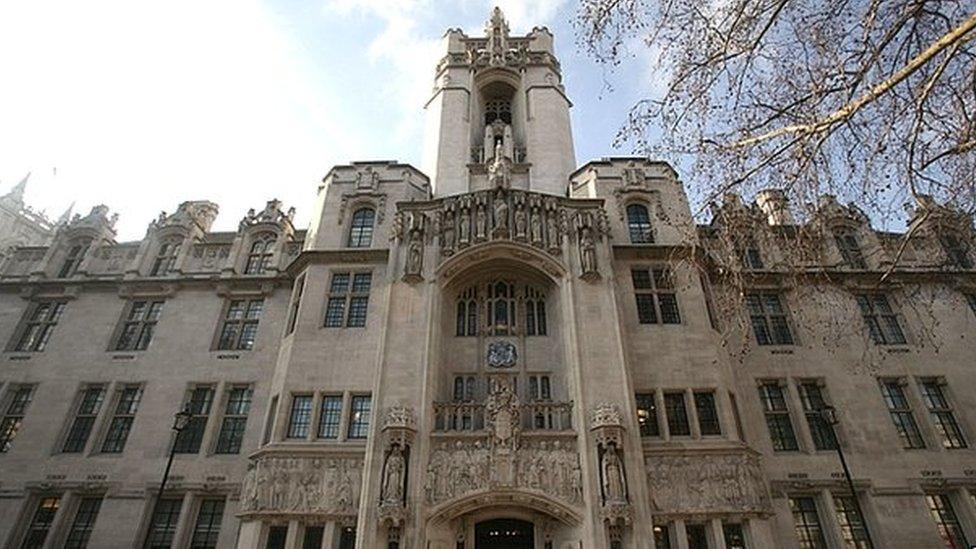
The fate of Holyrood's own Brexit bill is being decided at the Supreme Court in London
He added: "We've heard conflicting views from witnesses on whether or not substantive changes to existing trade arrangements will be required in the coming months.
"Either way, it is very disappointing that the bill is silent on the role of the devolved institutions in the negotiation of the new trade arrangements."
Trade is an area reserved to Westminster, although the UK government has committed "to working with the devolved administrations on our approach to the implementation of trade agreements".
'No good reason'
The three Conservative MSPs on the committee dissented from several of the report's conclusions about the Trade Bill.
One of them, Adam Tomkins, said the legislation was "fully compliant" with the devolution settlement.
He said: "The Scottish Conservatives believe there is no good reason for the SNP to withhold legislative consent to the Trade Bill.
"The Sewel convention is not broken - indeed, the UK government has recently repeated its full commitment to the Sewel convention and to 'the related practices and procedures for seeking legislative consent' and this is warmly to be welcomed."
- Published31 July 2018
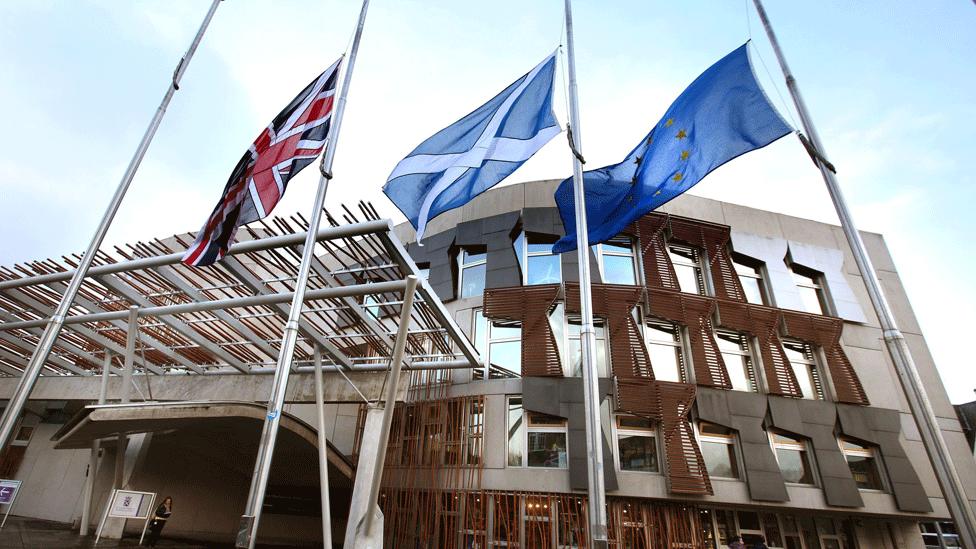
- Published12 June 2018
